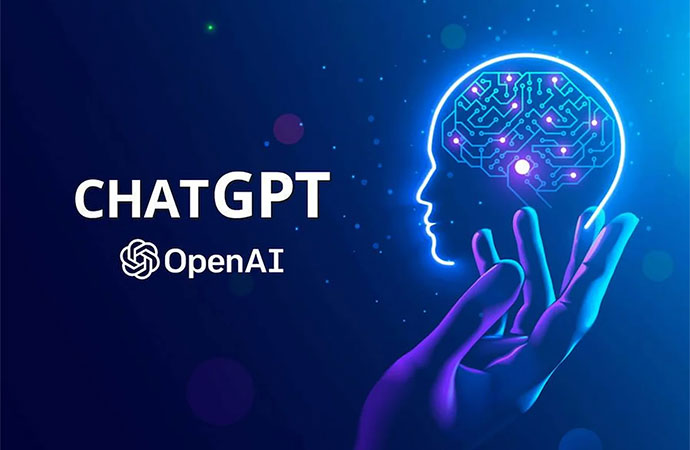Column

Image: Collected
Not many of our senior academics and decision makers in academia are keen about the use of AI like chat-GPT if not outright hostile towards it. Some academics lament that the young generation no longer wants to study and things are so bad that they depend on machines rather than books.
This is only to be expected. Nothing drives home the enormous change that technology has brought about in our lives than the growth of AI in academia. However, its presence is everywhere. The inevitability of its presence in our life is something we need to accept. It's here to stay and we better learn to deal with it because it's not about to go away at all. In any space.
An understandable set of emotions
In the last month I myself faced the chatgpt shock if you will when I had given an assignment to my students and all the answers came back more or less the same. Natural intelligence is enough to tell you that the source of the similarity in the scripts was due to the use of machines and confirmed what I knew about what was happening.
Most students use AI for answers particularly in case of 'bring from home" assignments. I had no idea of the scale of the use but this was a good reminder that this was very extensively used. much more than we think, perhaps more than we can think.
Not denial but understand
So I went directly to the source and asked about the "Pros and Cons of ChatGPT. From whom? Well, from the same. And this is what I got. This article by one Hillary Hutchinson / August 1, 2023 came up. And her words are sensible, her approach pragmatic.
Going by what she says, AI is being used by most if not almost all but few students know about its positive and negative sides nor its limitations and potentials. So Hillary has the following analysis.
The positives are better known. It provides higher access to information across the board which allows gathering of facts and data which are not easily available. It can generate new ideas offering suggestions, prompting questions, and even helping students to think of new dimensions.
It does save time too both as a search engine and improves language, corrects grammar and spelling errors, makes useful suggestions etc.
However, there are a number of issues which need to be remembered too. There are privacy issues due to the prompts used for data generation. Not only are prompts and data stored but privacy issues are now becoming a new problem.
Hillary says, "ChatGPT generates responses based on patterns it has learned from its training data, but it does not have real-time fact-checking capabilities. "In other words, one can never be sure that the data one is getting as a result of the prompts/questions asked is legit or not. One could be getting false responses.
AI ChatGPT has limitations too when it comes to interpretation of context or intent of a question. This can lead to irrelevant or incorrect responses. The big joke around such responses is when an author facing difficulties in finishing his novels asked what he should do to complete his task, the machine said, he should leave his wife.
In other words, it's not exactly an all knowing and answering machine but a tool that tries to align prompts with the responses it gathers using its digital memory. Not the fountain of wisdom, as some think.
AI tools are not critical analysis capable machines. ChatGPT is largely dependent on existing information and it doesn't have the ability to critically evaluate sources or delve into multi-layered analysis. If a student is expecting complete and comprehensive analysis just by making prompts, they are mistaken. It doesn't replace a thinking individual, it is just an aid. Just like Google search.
However, the fact remains that it's there to stay.
So what to do now?
But no matter how critical we are of it, we have to deal with it. So how does one deal with it particularly in the classroom. Some suggestions by the author
1. Clearly communicate your expectations to students
Students should know exactly what you want them to do. Instead of forbidding the use of AI, explain how best it can be used.
2. Help students learn how to responsibly use the tool
3. It's a machine and a new one and very attractive particularly to the student not so keen or able to work hard on this exam. So training them to use AI properly is a priority. accept the reality and help the students. Provide guidance on how to properly integrate the chatbot results
4. Encourage verification and fact-checking: Let them use AI but also encourage them to check what the AI says with other sources including books.
5. Use plagiarism detection tools though its not always guaranteed. Once students know they could get less marks, they will get the boundaries and work harder to get good marks.
And always offer support and feedback, positive, practical and rational.
What next?
AI use is a sign of change. It has happened before and more will happen but instead of ignoring and hoping it will go away will not resolve any problem. Train, help, support and just as calculators were once forbidden but are now an essential part of academia, such tools should and will be seen as aids and additions not a replacement of learning.
BTW, serious students don't depend on AI to write their answers as they have too much pride and ambition. The rest are just trying to pass and move on to make a living. The future is not the same for all and nor is the present.

























Leave a Comment
Recent Posts
Pedaling Through the Mangroves ...
The journey from the bustling streets of Barishal to the serene, emera ...
Why the Interim Government mus ...
Two weeks out from what is expected to be a red letter day in the figh ...
Doesn’t matter who thinks what about Bangladesh deci ..
The Other Lenin
US President Donald Trump said his administration
Govt moves to merge BIDA, BEZA, BEPZA, MIDA